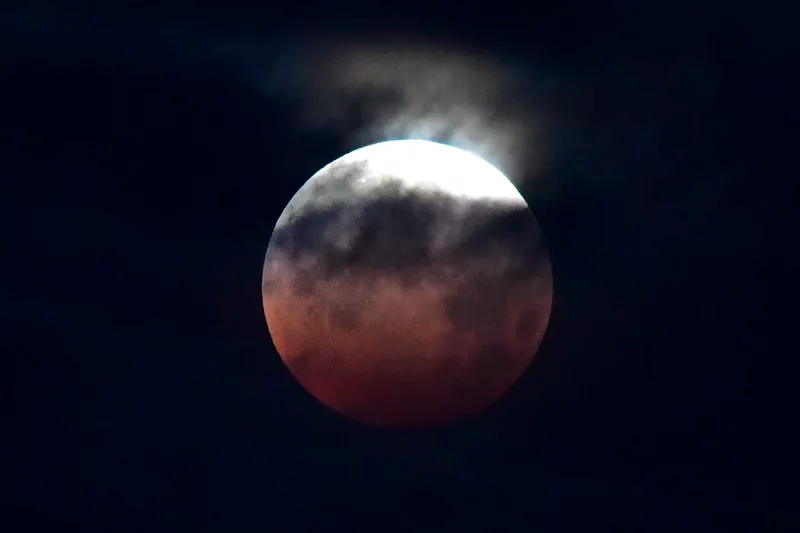 |
| Photo: Getty Images |
According to information given by the National Aeronautics and Space Administration (NASA), the full moon will enter Earth’s shadow on May 26. Following this, when the Moon is not in our planet’s shade, it will appear even larger and brighter compared to usual.
The total length of the eclipse, the time when the Moon is in its deepest shadow, will last for roughly 15 minutes. In the event that the Moon is up when this event happens, viewers are in for a real treat, according to the agency.
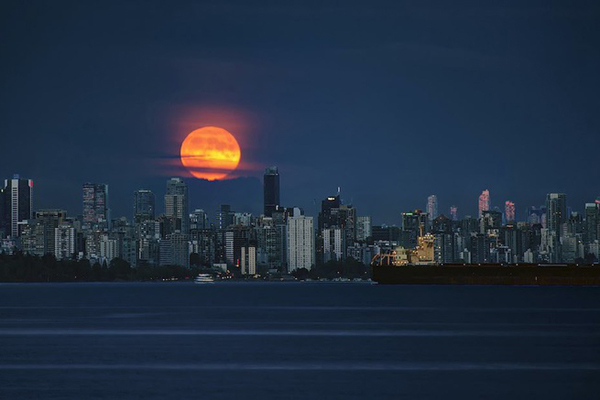 |
| Photo: Vietnamnet |
Specifically, those wishing to watch in the America, East Asia, and Australia will be able to view the super blood moon in the early morning of May 26, providing the weather conditions are good.
Vietnamese people can also watch the phenomenon at 6:11 p.m. on the same day.
The European Space Agency (ESA) is set to broadcast the phenomenon live at 4:30 p.m. on May 26.
What is a super blood moon?
Throughout history, lunar eclipses have seemed dramatic. The Moon’s grey-white disc deepens to yellow and orange and finally a dark red cast – this gives a lunar eclipse its nickname of the blood Moon.
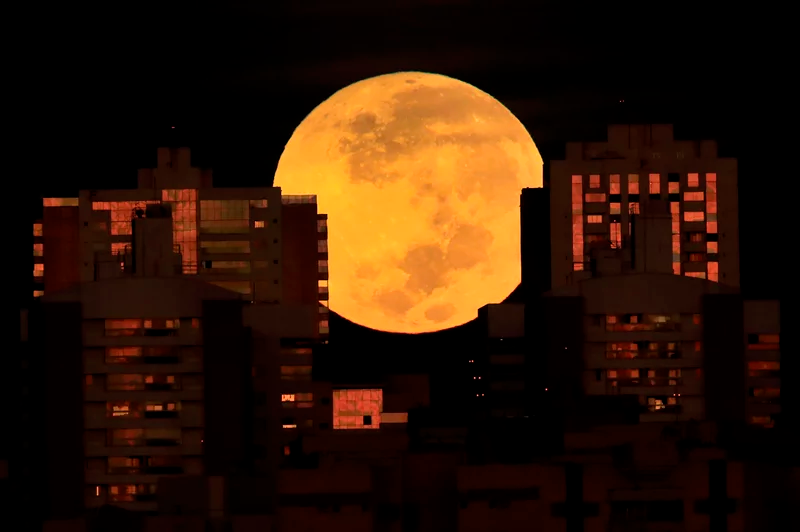 |
| Photo: Eraldo Peres/AP |
Cultures across the world have thought of the lunar eclipse as a sign of changing fortunes or even ill fortune. The ancient Mesopotamians thought the lunar eclipse was an assault on the king and installed proxy kings during the lunar eclipse so no harm came to their rulers. The Hupa and Luiseño tribes of California thought that the Moon must be injured or sick during the lunar eclipse.
A total lunar eclipse will be visible from parts of Australia, Asia and the western parts of North and South America on May 26. This coincides with a supermoon – a point where the full Moon is closest to Earth.
The physical causes of the lunar eclipse are more straightforward than illness, injury or bad luck. A lunar eclipse takes place when the Moon moves into the Earth’s shadow. The Earth has to be directly between the Sun and the Moon, and a lunar eclipse can only take place during a full Moon.
First, the Moon moves into the penumbra – the part of the Earth’s shadow where not all of the light from the Sun is blocked out. Part of the Moon’s disc will look dimmer than a regular full Moon.
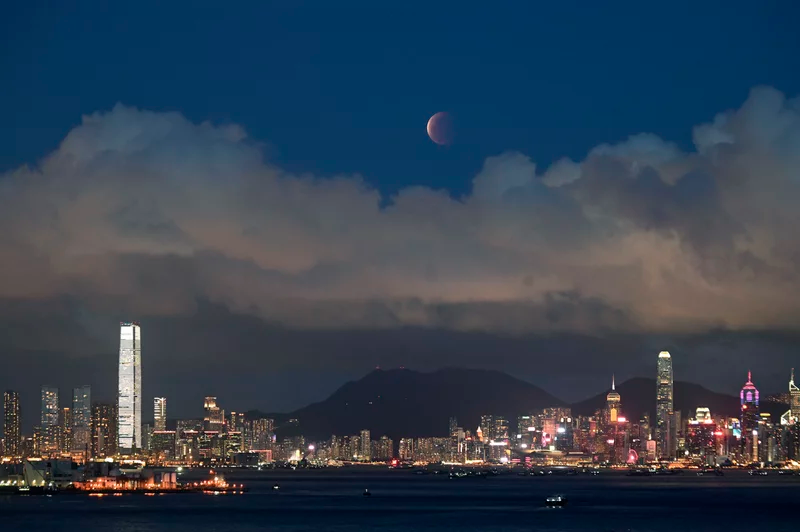 |
| The moon rises over Victoria Harbour in Hong Kong on Wednesday. Kin Cheung/AP |
Where things get interesting – and strange – is when the Moon moves into the Earth’s umbra, where direct light from the Sun is totally blocked out by the Earth. This means the only light reflecting off the Moon’s disc has already been refracted, or bent, by the Earth’s atmosphere.
Blue light is refracted and scattered more by the atmosphere. While all wavelengths of light travel at the same speed, when they pass through a different material —- such as passing from the vacuum of space to Earth’s denser atmosphere —- the shorter, bluer wavelengths are refracted and scattered more because of their higher frequency.
This refraction and scattering mean that only longer wavelengths of light reach the Moon and are reflected back to Earth. Red light has a longer wavelength than blue light, which gives the lunar eclipse its characteristic reddish colour. On Earth, we see the same effect during sunrises and sunsets, when the sky has a more reddish glow than during the day.
During a total lunar eclipse, the whole of the lunar disc enters the Earth’s umbra, so lucky Moon gazers will be able to see a full, reddish Moon. This won’t last forever, though. After about 14 minutes, the Moon will move out of Earth’s umbra and back into its penumbra. In total, the lunar eclipse will last a few hours.
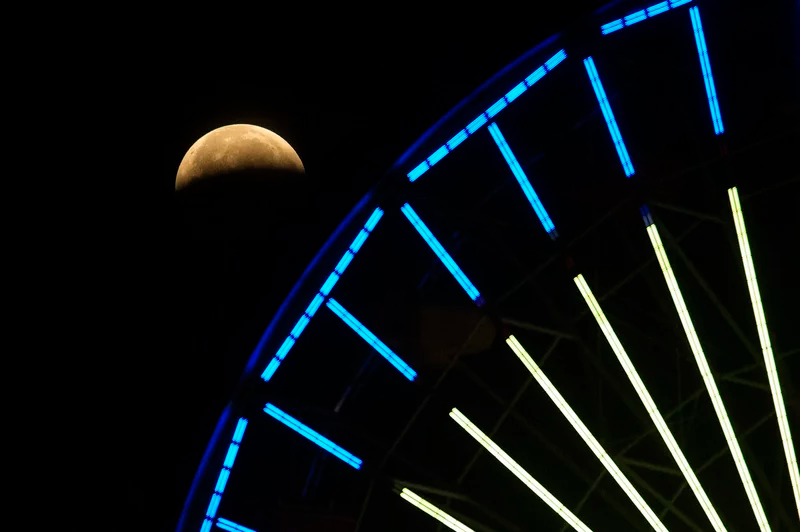 |
| The lunar eclipse progresses behind a Ferris wheel over Santa Monica Beach on Wednesday in Santa Monica, Calif. The first total lunar eclipse in more than two years is coinciding with a supermoon. Ringo H.W. Chiu/AP |
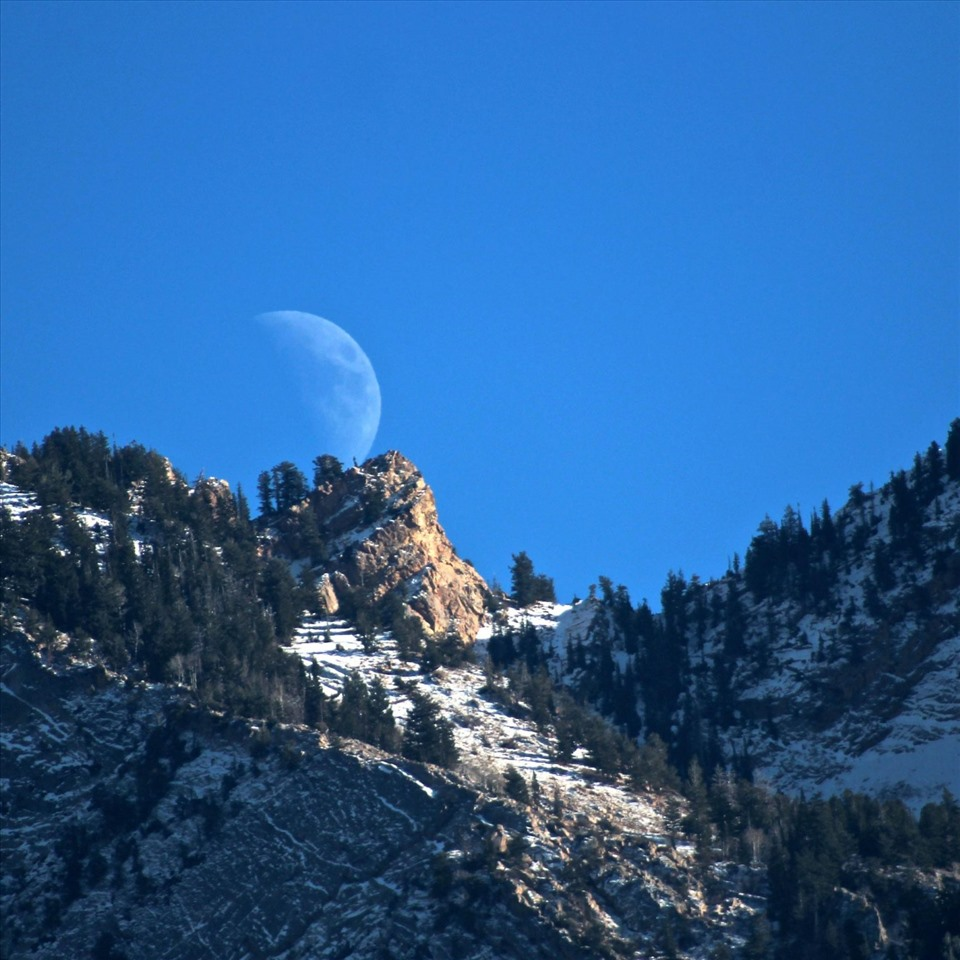 |
| Photo: NASA |



